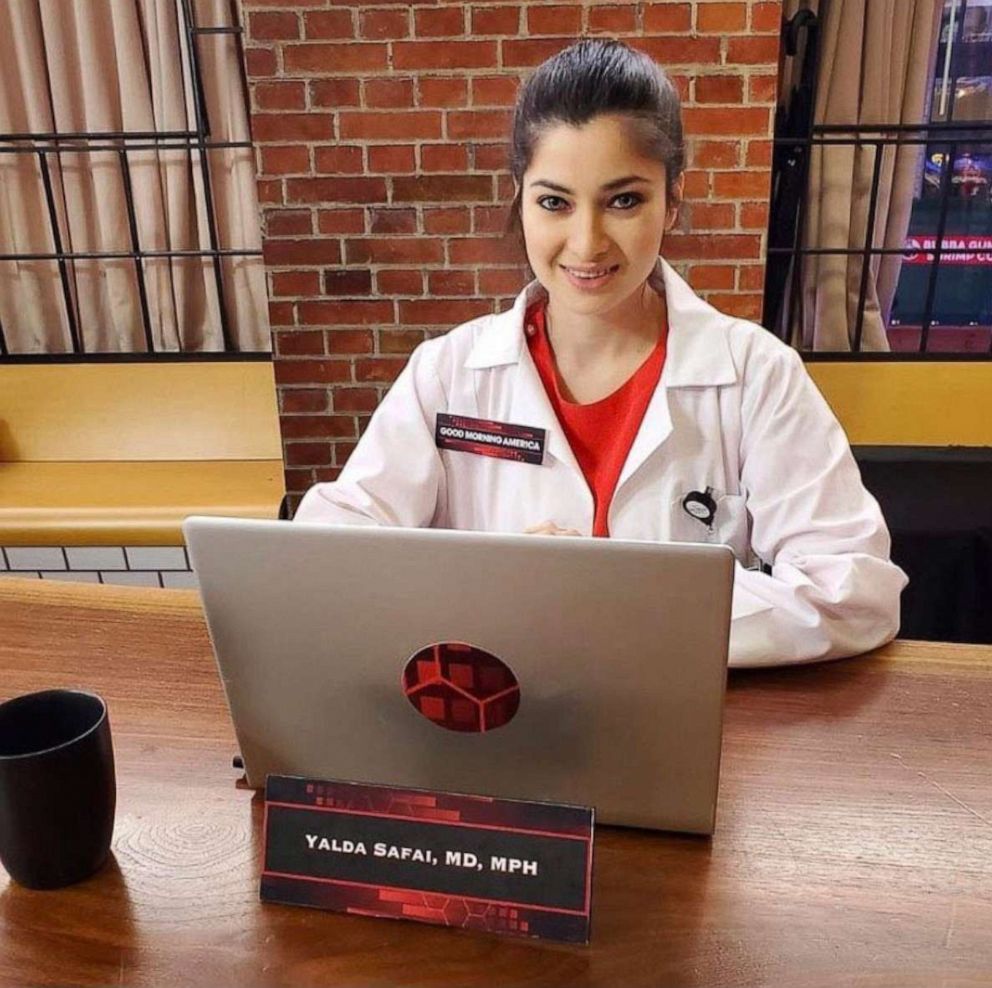Doctors facing burnout could see job repercussions for seeking antidepressants
According to a 2018 study, 300 to 400 physicians die by suicide each year.
As a freshly minted psychiatrist, the last step on my path to practicing medicine was to complete an application for medical licensing in my home state. Every physician, after completing residency training, is required by law to apply and obtain a license in the state he or she intends to practice. On the application, I came across the ominous question: Have you currently or in the past been diagnosed with a mental illness that might affect your ability to perform your job?
I have come across this question before. I occasionally suffer from seasonal affective disorder, a mild case of depression that results from reduced levels of sunlight during the winter months. An estimated 10 million Americans experience SAD each year. My application for disability insurance was denied after an investigation of my visits to a psychiatrist for SAD.
Already scarred from my previous experience, I was plagued with the fear that answering "yes" might jeopardize my future as a physician and shatter my credibility as a psychiatrist.
My feelings are not unique.
There is a tangible stigma in medicine and a false notion that physicians are supposed to be superhuman and not suffer from the same diseases that consume others. The superhuman image of physicians has strengthened since the coronavirus pandemic. Images of health care workers in capes are plastered over the internet, and while heartwarming, has elevated the image of physicians and placed undue pressure on them to live up to lofty expectations.
I distinctly remember a psychiatrist colleague advising me not to discuss with anyone that I'm taking medication for SAD. The disappointment I felt from her comment lingered for months and further confirmed that stigma against mental illness remains very much alive in the medical community.
If my fellow psychiatrist believes that seeking help for mental illness is a dirty secret not to be discussed, even among mental health professionals, then the entire premise of my career is a sham.
Why is this a problem?
Physician burnout was an epidemic far before the pandemic hit. According to research presented at the 2018 American Psychiatric Association meeting, 300 to 400 physicians die by suicide each year and doctors have the highest suicide rate of any profession in the U.S., including combat veterans. The suicide rate among male physicians is 40% greater than men in the general population, and the rate for women physicians is 130% greater.
Since the pandemic hit, medical professionals have been responding to this crisis with unprecedented courage and resilience. The suicide of New York City emergency room physician Lorna Breen on April 26, after months of working on the front lines, highlights the extreme mental health burden that physicians face in the COVID-19 era.
In recent years, even more so since the pandemic, health care workers have been encouraged to seek mental health support. On the surface, this might seem like the field of medicine is finally moving toward a culture of empathy and support in the midst of a severe professional stressor: a pandemic. Many state medical boards in the U.S., however, continue to ask medical license applicants extensive questions related to past psychiatric treatment -- a practice that differs for non-psychiatric care. Similar questions are also found on hospital credentialing applications and malpractice insurance applications.
This line of questioning focuses on whether the applicant merely has a past psychiatric history that conflicts with the views of the American Psychiatric Association, which says that having a psychiatric history is not an accurate predictor of mental fitness and, accordingly, status questions are irrelevant to the question of current impairment.

The argument in favor of such invasive questioning is that the mental state of a physician is imperative to the safety of patients and should be carefully dissected during licensing. The Federation of State Medical Boards and American Psychiatric Association has emphasized that current impairment and risk to patients cannot be inferred from history of mental illness alone. Illness does not equate to impairment.
Such invasive questions place the physicians in an unfortunate predicament -- to disclose and face additional questioning and scrutiny, or to conceal and risk potential professional licensure and legal consequences.
Over the past few years, due to many legal challenges and court decisions, the U.S. Department of Justice has established that such questions violate the Americans with Disabilities Act. Yet many professional applications -- for licensing, employment, disability, health and life insurance -- continue to use them. This has meant that seeking mental health support at any point in a physician's life has the potential to taint their future career years. The hesitancy health care workers face when deciding to seek help is very real, even today, and rooted in potential long-lasting career consequences.
The hypocrisy of it all stuns me. Seek help if you need it. But it might ruin your career.
So how do we change?
Encouraging individual "self-care" offerings such as wellness seminars and meditation workshops is not going to address the mental health crisis facing our health care workers. Shatter stigmas, encourage treatment and change the stoic, toxic culture of medicine that makes suffering easy to overlook.
A solid start can be addressing hospital and state licensing questions related to mental health by ensuring that questions pertain to competence rather than illness, or eliminating them altogether.

In retrospect, I should not have felt disappointment in response to my colleague's comments. She didn't understand that she was feeding into everything mental health professionals are working to combat: shame, guilt and judgment. The correct reaction to my colleague would have been to take pride that I sought help, when needed, and encourage her to do the same.
While I don't consider SAD a mental illness, I still put "yes" on my licensing application. I chose "yes" because mental illness is nothing to be ashamed of. I chose "yes" because as a physician it is my responsibility to use my power to change perceptions.
Did I feel violated from this line of questioning? Of course. Did I feel discriminated against? You bet. Did I wish we lived in a society that works to shatter stigmas instead of inciting feelings of shame, judgment and punishment for seeking mental health treatment? I do and I vow to fight every day to change that.
If you're a health care worker who's going through a hard time, you're not alone. If you or someone you know is in immediate distress or is thinking about hurting themselves, call the National Suicide Prevention Lifeline toll-free at 1-800-273-TALK (8255) or the toll-free TTY number at 1-800-799-4TTY (4889). You also can text the Crisis Text Line (HELLO to 741741) or go to the National Suicide Prevention Lifeline website.
Yalda Safai, M.D., M.P.H., a psychiatry resident in New York City, is a contributor to ABC News Medical Unit.




